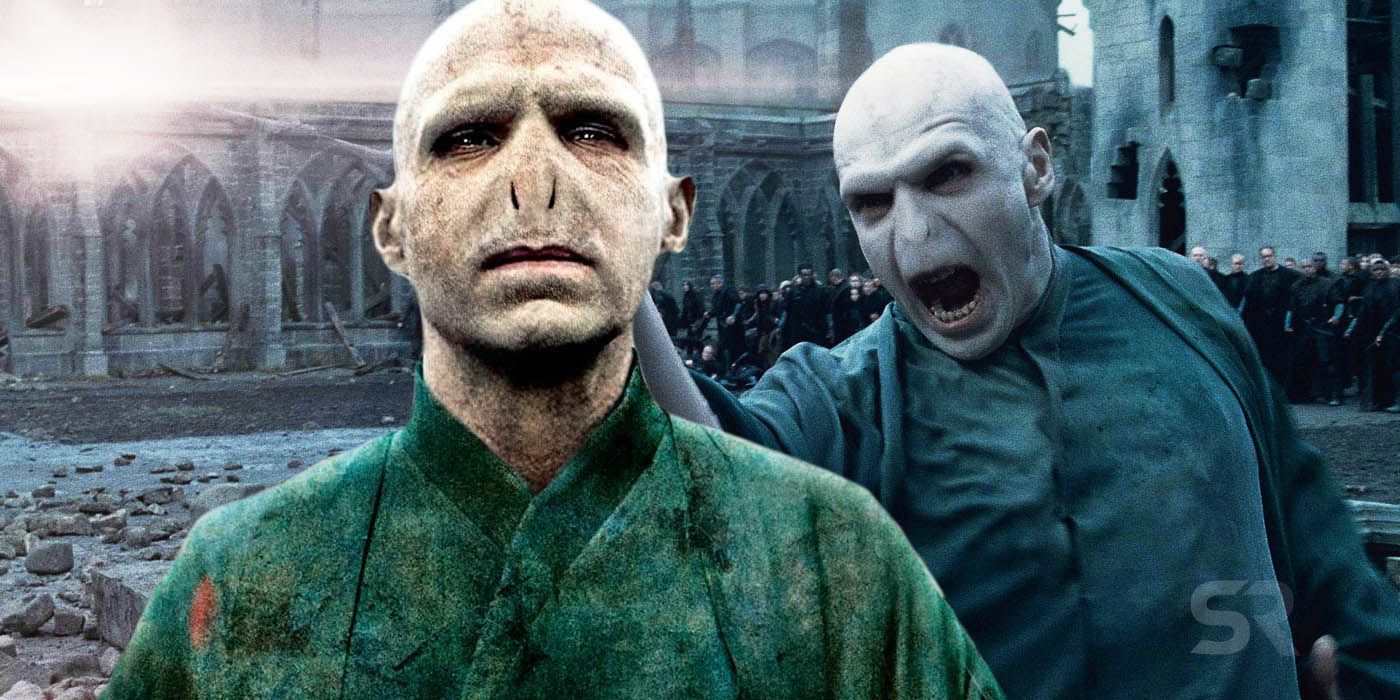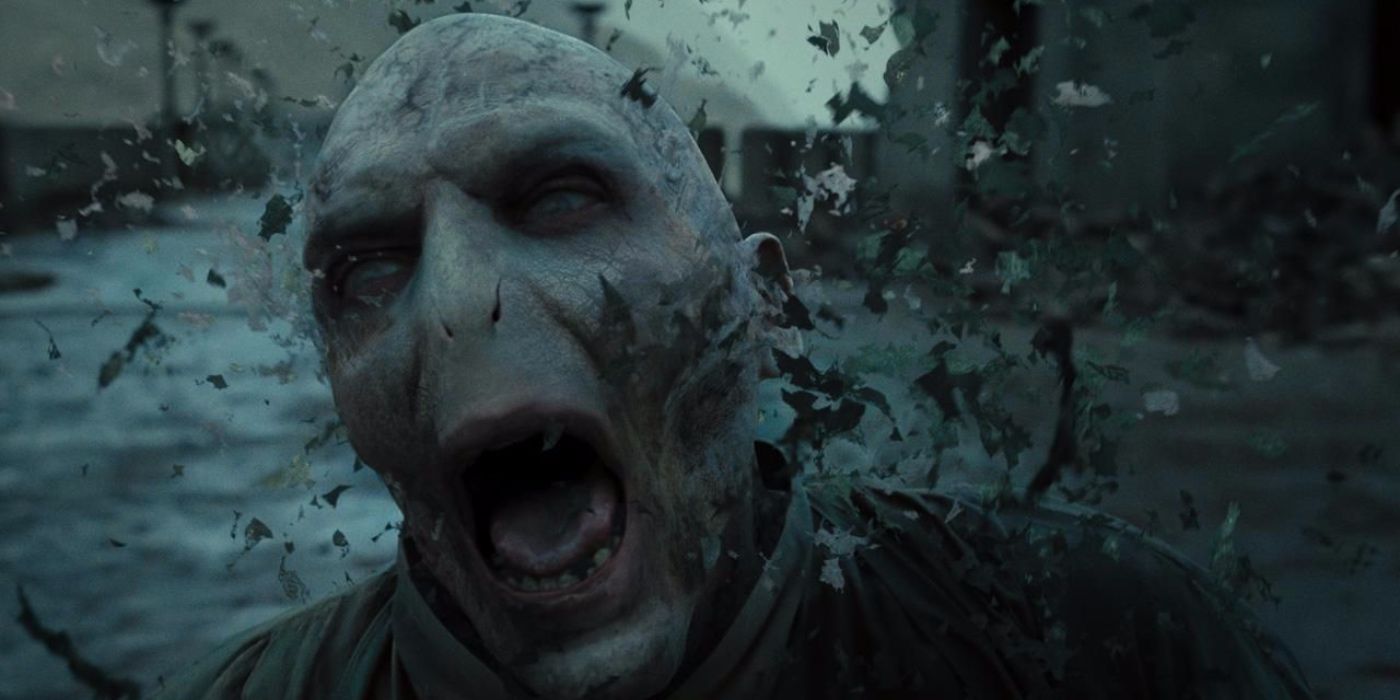
The Harry Potter movie series made many changes to some characters, events, and places from the books, and among those is Lord Voldemort's death, which is very different in the source material. J.K. Rowling introduced readers to the Wizarding World in 1997 with Harry Potter and the Philosopher's Stone, the first entry in what would become a successful book series with a total of seven novels. It didn't take long for the Harry Potter universe to get the big screen treatment, with the movie series beginning in 2001 and ending ten years later after eight films (the final book, Harry Potter and the Deathly Hallows, was divided into two films).
The story of the boy who lived reached a wider audience thanks to the movies, but as it happens with all books adapted to the big screen, there were many characters (such as Peeves) that were left out, and some scenes that had to be changed to better fit the format. Some of these had a big impact on the audience and not in a good way, as they ended up being very out of character for some (like angry Dumbledore in Harry Potter and the Goblet of Fire) or changed the tone completely, as happened with Fred Weasley's death.
Others turned out to be very dramatic even for the Harry Potter universe, as is the case of Voldemort's death in Deathly Hallows, which is very different to the one in the book, and could have been even worse.

In Harry Potter and the Deathly Hallows – Part 2, audiences witnessed the final confrontation between Voldemort and Harry Potter, following the apparent death of the latter (who was able to come back thanks to the piece of Voldemort's soul kept in him). In the book, it all took place in Hogwarts' Great Hall, with all horcruxes already destroyed and Voldemort left vulnerable as the only piece of his soul that was left was, well, him. Harry already knew he had a big advantage as Voldemort had the Elder Wand but its real master was Harry, and the wand can't harm it's true master. When Voldemort cast the killing curse against Harry, it bounced off and killed him instead, and He Who Shall Not Be Named collapsed to the ground – and in the words of Rowling, “his body feeble and shrunken, the white hands empty, the snake-like face vacant and unknowing”. A somewhat normal death.
The movie, however, went for the drama. The duel took place outside of Hogwarts, interrupted by the death of Nagini, the final horcrux (by the hand of none other than Neville Longbottom), and resumed immediately after. The now weak Voldemort was overcome by Harry's spell and hit by it, with the Elder Wand going back to Harry's hand. Voldemort's body then began to disintegrate, and his ashes floated away into the wind. A dramatic death for a dramatic character, but it didn't have the same impact as his original death did, and as it turns out, it was almost worse. Way worse.
Visual effects supervisor Greg Butler told The Huffington Post back in 2017 that they had different ideas for Voldemort's death, including one where he turned into a “blackened, charcoal-y tree shape that's growing” and then to ash. Butler added that there was a part where he was sitting in the courtyard, and then he would turn into a “blackened shrub-thing with fingery branches”, which was then made into a tree shape as they “had a lot of screen space to fill”. That was the origin of the ashes, and was the only part of this idea that made it to the movie. Voldemort's death in the Harry Potter movies was not only too visually dramatic, but it failed to show how the Elder Wand operates, and that's one of the main reasons why fans weren't totally on board with it. Still, and especially to those not familiar with the novels, it's a memorable scene for how he disintegrates and turns into ashes.
from ScreenRant - Feed https://ift.tt/39jIwqY


0 Comments